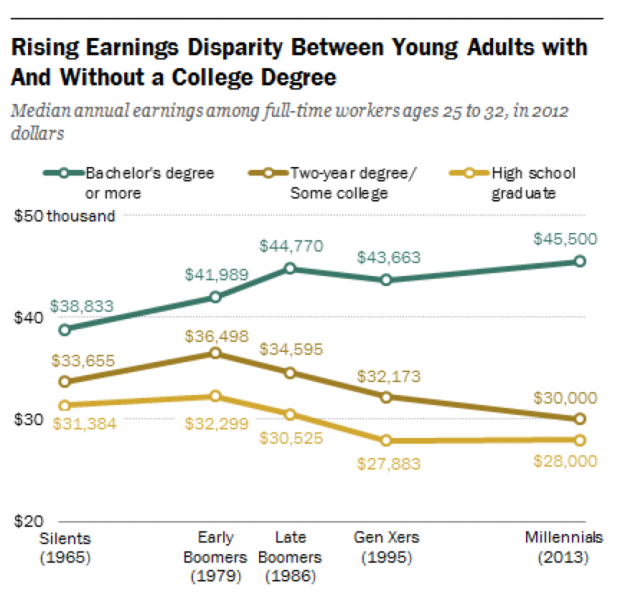Study: Not Going To College Will Cost You

Screenshot / Pew Research Center
The gap in median earnings between those who have graduated college and those who haven't is growing, according to a Pew Research Center survey.
The earnings gap between college graduates and those who only finish high school is growing, according to a new report this week from the Pew Research Center.
The median income of a high school graduate in 2013 was about two-thirds that of a college graduates the same year. In 1979, the median income of a high school graduate was about three-quarters that of a college grad.
The good news is that students are earning college degrees at a higher rate than at other points in the past 50 years. One-third of students in the Millennial Generation (born after 1980) have earned a college degree. That’s up form about one-quarter of the three previous generational cohorts, Gen Xers, Late Boomers and Early Boomers.
The bad news? Inflation-adjusted median annual income has remained flat across the four generations. That’s because as college graduates have earned more, those without a college degree have earned less.
The data is important to remember as the cost of higher education increases faster than inflation, and more people take the ‘no’ side of the “is college worth it?” debate.
The Pew survey found most students believe college was worth it and that the degree had already paid off. The key is what and how much college students are buying, and how much of it they’re paying for with loans.